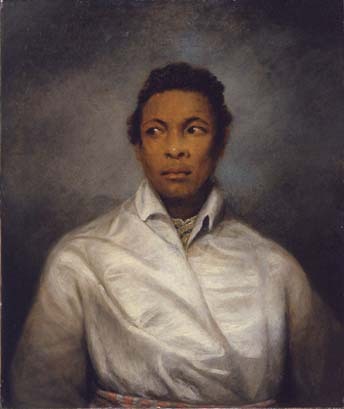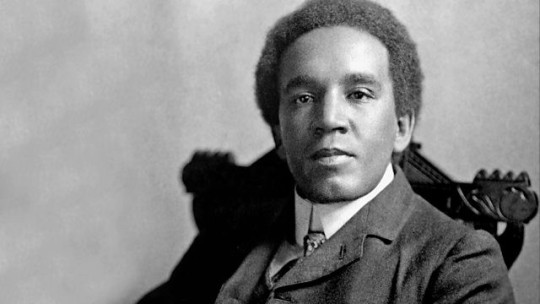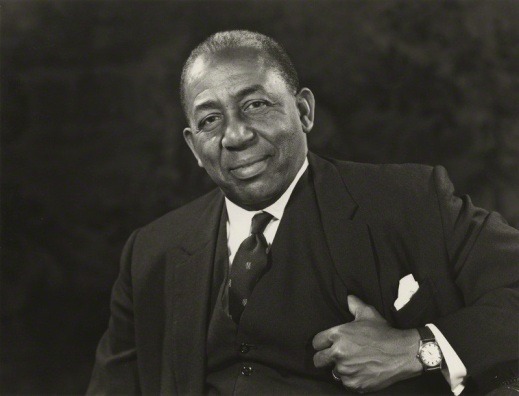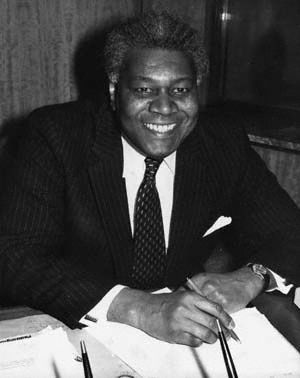#shipping companies from china to ghana
Text
What Are the Best Shipping Options from China to Ghana?
Shipping from China to Ghana has become increasingly streamlined, catering to individuals and businesses alike. Companies like Aquantuo offer end-to-end freight services, including air, sea, and land transportation, ensuring that packages are delivered efficiently and securely to your doorstep.
With options like consolidated shipping, warehousing, and pick-and-pack fulfillment, customers can choose services tailored to their needs. Additionally, Aquantuo provides a free mobile app for easy tracking and management of shipments, making the process more convenient.
#shipping from china to ghana#shipping from china to kenya#cheap shipping from china to ghana#shipping companies from china to ghana#shipping agents from china to ghana
0 notes
Text
Optimizing Your Supply Chain: The Benefits of Warehousing Services in Ghana
In today’s fast-paced global market, businesses are constantly seeking ways to enhance their supply chain efficiency and reduce operational costs. One critical component that can significantly impact these objectives is warehousing. For companies involved in international trade, particularly those shipping goods from China to Ghana, warehousing services in Ghana offer a strategic advantage that goes beyond mere storage. The various benefits of utilizing Warehousing Services in Ghana and how they can optimize your supply chain, especially for shipping companies from China to Ghana.
0 notes
Text
How Chinese Fishing Vessels Dominate Domestic Waters Across the Globe
New Post has been published on https://sa7ab.info/2024/08/01/how-chinese-fishing-vessels-dominate-domestic-waters-across-the-globe/
How Chinese Fishing Vessels Dominate Domestic Waters Across the Globe
On March 14, 2016, in the squid grounds off the coast of Patagonia, a rusty Chinese vessel named the Lu Yan Yuan Yu 10 was fishing illegally, several miles inside Argentine waters. Spotted by an Argentine coast-guard patrol and ordered over the radio to halt, the specially-designed squid-fishing ship, known as a “jigger,” fled the scene. The Argentinians gave chase and fired warning shots. The Lu Yan Yuan Yu 10 then tried to ram the coast-guard cutter, prompting it to open fire directly on the jigger, which soon sank.
[time-brightcove not-tgx=”true”]
Although the violent encounter at sea that day was unusual, the incursion into Argentine waters by a Chinese squid jigger was not. Owned by a state-run behemoth called the China National Fisheries Company, or CNFC, the Lu Yan Yuan Yu 10 was one of several hundred Chinese jiggers that makes annual visits to the high-seas portion of the fishing grounds that lie beyond Argentina’s territory; many of these jiggers then turn off their locational transponders and cross secretly into Argentine waters. Since 2010, the Argentine navy has chased at least 11 Chinese squid vessels out of Argentine waters for suspected illegal fishing, according to the government.
In 2017, a year after the illegal incursion and sinking of the Lu Yan Yuan Yu 10, Argentina’s Federal Fishing Council issued a little-noticed announcement: it was granting fishing licenses to two foreign vessels that would allow them to operate within Argentine waters. Both would sail under the Argentine flag through a local front company, but their true “beneficial” owner was the CNFC. (The CNFC did not respond to requests for comment.)
The move by local authorities may have been a contradiction, but it is an increasingly common one in Argentina—and elsewhere around the world. Over the past three decades, China has gained supremacy over global fishing by dominating the high seas with more than 6,000 distant-water ships, a fleet that is more than triple the size of the next largest national fleet. When it came to targeting other countries’ waters, Chinese fishing ships typically sat “on the outside,” parking in international waters along sea borders, then running incursions across the line into domestic waters. But in recent years, from South America to Africa to the far Pacific, China has increasingly taken a “softer” approach, gaining control from the inside by paying to “flag-in” their ships so they can fish in domestic waters. Subtler than simply entering foreign coastal areas to fish illegally, the tactic is less likely to result in political clashes, bad press, or sunken vessels.
While many nations have laws that require vessels fishing in their waters to be locally owned—with the aim of keeping profits in the country and making it easier to enforce fishing regulations—China has found ways around them. Chinese companies partner with locals, or even sell or lease their ships to them, but retain control over decisions and profits. Or they buy their way into local waters with “access agreements.”
Chinese companies now control at least 62 industrial squid-fishing vessels that fly the Argentine flag, which constitutes most of the country’s squid fleet. Many of these companies have been tied to a variety of crimes, including dumping fish at sea, turning off their transponders, and engaging in tax evasion and fraud. Trade records show that much of what is caught by these vessels is sent back to China, but some of the seafood is also exported to countries including the United States, Canada, Italy, and Spain. China now operates almost 250 of these flagged-in vessels globally, including ones that operate off the coasts of Micronesia, Kenya, Ghana, Senegal, Morocco, and Iran.
A four-year investigation by the Outlaw Ocean Project into the global seafood supply chain—which entailed reporting at sea on several ships, including to the waters of Argentina, the Falkland Islands, near Korea and the Galapagos Islands—has for the first time revealed the true size of this hidden fleet, along with the extent of the fleet’s illegal behavior, concentration in certain foreign waters, and the amount of seafood from these ships that winds up in European and American markets.
“Most national fisheries require vessels to be owned locally to keep profits within the country and make it easier to enforce fishing regulations,” said Duncan Copeland, the former executive director of Trygg Mat Tracking, a non-profit research organization specializing in maritime crime. “Flagging-in undermines those aims.”
China has not hidden how this approach factors into larger ambitions. In an academic paper published in 2023, Chinese fishery officials and representatives from Zhejiang Ocean Family explained how they have relied extensively on Chinese companies, for example, to penetrate Argentina’s territorial waters through “leasing and transfer methods,” and how this is part of a global policy.
Experts said the decision by the Argentine government to flag in Chinese-owned vessels after the sinking of the Lu Yan Yuan Yu 10 confused them, given Argentine regulations that not only forbid foreign-owned ships from flying Argentina’s flag or fishing in its waters, but also prohibit the granting of fishing licenses to ship operators with records of illegal fishing in Argentine waters. Eduardo Pucci, a former Argentine fisheries minister, called it “a total contradiction.”
The trend is especially pronounced in Africa, where Chinese companies operate flagged-in ships in the national waters of at least nine countries on the continent—among them, notably, Ghana, where more than 135 Chinese fishing ships flying the Ghanaian flag are fishing in national waters, even though foreign investment in fishing is technically illegal. Nonetheless, up to 95 percent of Ghana’s industrial trawling fleet has some element of Chinese control, according to a 2018 report by the Environmental Justice Foundation, an advocacy group, the most recent available figures.
China has also replaced fishing vessels from the European Union, right on its doorstep, in the waters of Morocco. In the recent past, dozens of vessels, most of them from Spain, fished with the permission of the Moroccan government inside the African country’s exclusive economic zone. The agreement lapsed, however, in 2023 and China now operates at least six flagged-in vessels in Moroccan waters. China has also established a growing presence across the Pacific Ocean. Chinese ships comb the waters of Fiji, the Solomon Islands, and the Federated States of Micronesia, having flagged-in or signed access agreements with those countries, according to a report released in 2022 by the Congressional Research Service in the U.S.
“Chinese fleets are active in waters far from China’s shores,” the report warned, “and the growth in their harvests threatens to worsen the already dire depletion in global fisheries.”
As global demand for seafood has doubled since the 1960s, the appetite for fish has outpaced what can be sustainably caught. Now, more than a third of the world’s stocks have been overfished, according to the Food and Agricultural Organization of the United Nations ( FAO). To feed the demand, the proliferation of foreign industrial fishing ships, especially from China, risks depleting domestic fish stocks of countries in the global south while also jeopardizing local livelihoods and compromising food security by exporting an essential source of protein. Western consumers, particularly in Europe, the U.S. and Canada, are beneficiaries of this cheap and seemingly abundant seafood caught or processed by China.
“Illegal fishing and abusive fishing takes away from communities that survive on the same fish,” says Dyhia Belhabib, a principal investigator at Ecotrust Canada, a charity focused on environmental activism. “This means that their current and future economic prospects from this very valuable resource are being destroyed and their food resources depleted.”
But ocean sustainability and food security are by no means the only concerns tied to the growth of China’s control of global seafood and penetration into foreign near-shore waters. Labor abuses and other crimes are a widespread problem with Chinese fishing ships.
In the past six years, more than 50 ships flagged to a dozen different countries but controlled by Chinese companies have engaged in crimes such as illegal fishing, forced labor, and unauthorized transhipment, or transfers of catch at sea to carrier ships that transfer it back to shore, according to the investigation by the Outlaw Ocean Project. In one instance, a fisheries observer from Ghana went missing while working on the vessel. Four of the vessels showed a pattern of repeatedly turning off their automated tracking systems for longer than a day at a time while out on the Pacific, often at the edge of an exclusive economic zone. Vessels “going dark” is a risk factor for illegal fishing and transshipment, marine researchers say, because it makes it harder for law enforcement to comprehensively track a vessel’s movement or see if it may have engaged with other ships at sea.
For most of the past decade, one dead body has been dropped off every other month on average in the port of Montevideo, Uruguay, mostly from Chinese squid ships, according to the Outlaw Ocean Project’s research. Some of the workers on these ships have died from beriberi, an easily avoidable and reversible form of malnutrition caused by a B1 vitamin deficiency that experts say is a warning sign of criminal neglect, typically caused on ships by eating too much white rice or instant noodles, which lack the vitamin. At least 24 workers on 14 Chinese fishing ships suffered symptoms associated with beriberi between 2013 and 2021, according to the investigation. Of those, at least 15 died. The investigation also reported dozens of cases of forced labor, wage theft, violence, the confiscation of passports and deprivation of medical care.
Many of these crimes have taken place on the high seas, beyond any country’s territorial jurisdiction. But increasingly, Chinese-owned vessels are fishing in the local waters of nations where policing is sporadic at best, as governments lack the finances, the coast-guard vessels, or the political will to board and spot-check the ships.
In January 2019, as part of the four-year investigation, a team of reporters from The Outlaw Ocean Project boarded a Chilean fishing ship in Punta Arenas, Chile, where the crew recounted recently watching a Chinese captain on a nearby squid ship punching and slapping deckhands. Later that year, the same team of journalists was reporting at sea off the coast of the West African nation of Gambia, where they boarded a Chinese ship called the Victory 205. There they found six African crew members sleeping on sea-soaked foam mattresses in a cramped and dangerously hot crawl space above the engine room of the ship, which was soon detained by local authorities for these labor and other violations. (Owners of the Victory 205 did not respond to a request for comment.)
In February 2022, the Outlaw Ocean Project reporters boarded a Chinese squid jigger on the high seas near the Falkland Islands, where an 18-year-old Chinese deckhand nervously begged to be rescued, explaining that his and the rest of the workers’ passports had been confiscated. “Can you take us to the embassy in Argentina?” he asked. Roughly four months later, the reporting team climbed onto another Chinese fishing ship in international waters near the Galapagos Islands to document living conditions. As if in suspended animation, the crew of 30 men wore thousand-yard stares. Their teeth were yellowed from smoking, their skin ashen, and their hands spongy from handling fresh squid. The walls and floors were covered in a slippery ooze of squid ink. The deckhands said they worked 15-hour days, 6 days per week. Mostly, they stood shin deep in squid, monitoring the reels to ensure they did not jam, and tossing their catch into overflowing baskets for later sorting. Below deck, a cook stirred instant noodles and bits of squid in a rice cooker. He said the vessel had run out of vegetables and fruit—a common cause at sea of fatal malnutrition.
In June 2023, the same reporters were contacted by Uruguayan authorities seeking help after a local woman stumbled across a message in a bottle, washed ashore, apparently thrown from a Chinese squidder. “I am a crew member of the ship Lu Qing Yuan Yu 765 and I was locked up by the company,” the message said. “When you see this paper, please help me call the police! Help, help.” When contacted for comment, the ship’s owner Qingdao Songhai Fishery said that Uruguayan police had looked into the matter and concluded that the message “was completely fabricated by individual crew members.”
Jorge Frias, the president of the Argentine fishing captains’ union, explains that on Argentine-flagged ships, the Chinese call the shots. The captains are Argentinians, but “fishing masters,” who are Chinese, decide where to go and when, he says.
The case of Manuel Quiquinte is illustrative. In the Spring of 2021, Quiquinte, an Argentinian crew member on a squid jigger called the Xin Shi Ji 89, contracted Covid while at sea. Owned by the Chinese, the ship was flagged to Argentina and jigging in Argentinian waters. Its crew was a mix of Argentinian and Chinese workers. Several days after Quiquinte fell ill, the Argentine captain called the Chinese owners to ask if the ship could go to shore in Argentina to get medical care. According to court testimony from another crew member, the company officials said no, and to keep fishing. Quiquinte died on the ship shortly thereafter, in May.
When contacted by the Outlaw Ocean Project about the death, the vessel’s parent company Zhejiang Ocean Family said that the crew member had tested negative for COVID-19 prior to working on board but had indeed contracted the illness on the vessel and died after his condition deteriorated rapidly. Ocean Family said the vessel belonged to a local Argentine company which Ocean Family has invested in (and which it did not identify), and it was this local company which handled the situation.
To help create jobs, make money and feed its growing middle class, the Chinese government heavily supports its fishing industry with billions of dollars in subsidies for things like fuel, ship building, or engine purchases. The Chinese fishing companies flagging into poorer countries’ waters are also eligible for these subsidies. “The reason why the Chinese subsidize these fleets could be not only for the fish,” said Fernando Rivera, chairman of the Argentine Fishing Industry Chamber. “It has a very important geopolitical aspect.”
As U.S. and European fishing fleets and navies have shrunk, so too has Western development funding and market investment in Latin America, Africa, and the Pacific. This has created a void that China is filling as part of its Belt and Road Initiative, Beijing’s global development program. Between 2000 and 2020, China’s trade with Latin America and the Caribbean grew from $12 billion to $315 billion, according to the World Economic Forum. China Development Bank and the Export-Import Bank of China, two major state-owned Chinese banks, provided $137 billion in loans to Latin American governments between 2005 and 2020. In exchange, China has at times received exclusive access to a wide range of resources, from oil fields to lithium mines.
The maritime domain is an important front in China’s growth plans, which include exerting power not just over the high seas and contested waters like those in the South China Sea, but also consolidating control over shipping, fishing in foreign coastal waters, and ports abroad. Chinese companies now operate dozens of overseas processing plants and cold-storage facilities, and terminals in more than 90 foreign fishing or shipping ports abroad, according to research by Kardon.
Though most of these business ventures go unnoticed, some of them have sparked controversy. Starting in 2007, China extended more than a billion dollars worth of loans to Sri Lanka as part of a plan for a Chinese state-owned company named the China Ocean Shipping Company Group to build a port and an airport. The deal was made based on the promise that the project would generate more than enough revenue for Sri Lanka to pay back these loans. By 2017, however, the port and airport had not recouped the debt, and Sri Lanka had no way to pay back the loan. China struck a new deal extending credit further. The deal gave China majority control over the port and the surrounding area for 99 years.
In 2018, a Chinese company named Shandong Baoma purchased a 70 acre plot of land in Montevideo, Uruguay, to build a “megaport” consisting of two half-mile-long docks, a tax-exempt “free-trade zone,” a new ice factory, a ship-repair warehouse, a fuel depot, and dorms for staff. The plan was eventually canceled after local protests, but the Uruguayan government later announced that it would build the port itself, with foreign investment, and China’s ambassador in Uruguay, Wang Gang, expressed interest in managing the project.
More recently, in May 2021, Sierra Leone signed an agreement with China to build a new fishing harbor and fishmeal processing factory on a beach near a national park. In response, local organizations pushed for more transparency around the deal, which they said would harm the area’s biodiversity, according to a 2023 report by The Stimson Center.
In Argentina, China has made or promised billions of dollars in currency swaps and investments, providing a crucial lifeline amid skyrocketing domestic inflation and growing hesitancy from international investors. For Beijing, this money has bought political influence. After the Argentine coast guard sank the Lu Yan Yuan Yu 10 in 2016, all 29 crew members were rescued from the water, and all but four of them were immediately taken back to China. The captain and three others were rescued by the coast guard, brought to shore, charged with a range of crimes, and put under house arrest.
The judge handling the case initially justified the charges filed. The Chinese officers had placed “both the life and property of the Chinese vessel itself and the personnel and ship of the Argentine Prefecture at risk,” he said. But China’s foreign ministry soon pushed back. Three days later, Argentina’s foreign minister told reporters that the charges had “provoked a reaction of great concern from the Chinese government” and that she had reassured China that Argentina would follow local and international laws. Several weeks later, in April, the Argentine judiciary also fell in line, releasing the captain and the three other sailors without penalty to be flown back to China. By May, Argentina’s foreign minister was on a plane to Beijing to meet with the Chinese foreign minister.
The scourge of illegal fishing and overfishing did not originate with China, of course. Western industrial fleets dominated the world’s oceans for much of the 20th century, fishing unsustainably in ways that have helped cause the current crisis, explained Daniel Pauly, a marine biologist at the University of British Columbia.
China’s expansionist methods are also not historically unique. The U.S. has a long and infamous record of intervening abroad when foreign leaders begin erecting highly protectionist laws. In the past several decades, the tactic of “flagging in” has also been used by American and Icelandic fishing companies. More recently, as China has increased its control over global fishing, the U.S. and European nations have jumped at the opportunity to focus international attention on China’s misdeeds.
Still, China has a well-documented reputation for violating international fishing laws and standards, bullying other ships, intruding on the maritime territory of other countries and abusing its fishing workers. In 2021, the Global Initiative Against Transnational Organized Crime, a nonprofit research group, ranked China as the world’s biggest purveyor of illegal fishing. But frequent culprits can also be easy scapegoats: a country that regularly flouts norms and breaks the law can also at times be a victim of misinformation. When criticized in the media, China typically pushes back, not without reason, by dismissing the criticism as politically motivated and by accusing its detractors of hypocrisy.
China’s sheer size, global reach, and poor track record on labor and marine conservation is raising concerns. In Africa, for instance, Chinese trawlers catch 100,000 metric tons of fish each year just from Ghanian waters, and the country’s fishing stocks are now in crisis, as local fishermen’s incomes have dropped by up to 40 percent over the last decade. “Fishing vessel owners and operators exploit African flags to escape effective oversight and to fish unsustainably and illegally both in sovereign African waters,” wrote TMT, the nonprofit that tracks maritime crime, adding that the companies were creating “a situation where they can harness the resources of a State without any meaningful restrictions or management oversight.” In the Pacific, an inspection in 2024 by local police and the U.S. Coast Guard found that six Chinese flagged-in ships fishing in the waters of Vanuatu had violated regulations requiring them to record the amount of fish they catch.
And in South America, the increasingly foreign presence in territorial waters is stoking nationalist worry in places like Peru and Argentina. “China is becoming the only player, by displacing local companies or purchasing them,” said Mr. Miranda, the former Peruvian minister. Pablo Isasa, a captain of an Argentinian hake trawler, added: “We have the enemy inside and out.”
Several major studies have shown that China is not only the biggest player in the global seafood industry, but also the largest purveyor of illegal fishing. On the high seas, there is little-to-no law enforcement, which allows the Chinese fleet to dip into waters where they are not authorized and to use prohibited techniques that can give them an edge — and which makes the myriad human-rights abuses committed on China’s fishing vessels practically invisible.
All of this contributes to an accelerating pace of unsustainable fishing around the world. After years of similar behavior from Western nations, including the U.S. and Europe, China is leading the way in fishing species to near extinction. The fleet also operates the world’s largest collection of bottom trawlers, which drag nets across the ocean floor, destroying coral reefs and other marine life.
Most marine conservationists and researchers agree that with a third of all fish stocks at the edge or beyond the point of collapse, the trend of overfishing must be reversed, as it threatens not only ocean health, but also global food security and human rights. As stocks decline, driving competition, companies face increasing pressure to cut corners in their fishing practices, which can often lead to the use of forced labor and other human rights crimes. Researchers and advocates recommend scaling back the size of global fishing fleets; tightening the quotas that limit how many fish can be pulled from the water; removing the government subsidies that make seafood artificially cheap; and for companies to take further steps to monitor their supply chains. If this does not happen, according to these experts, environmental degradation and human rights abuses will continue to worsen.
The superpower of seafood, China is unequivocally the most important global actor on the high seas today, but it also plays an outsized role in foreign waters. Better control of the hundreds of industrial Chinese fishing ships in the national waters of poorer, global South countries will be an important part of any plan to protect the oceans.
(This story was produced by The Outlaw Ocean Project with reporting contributed by Maya Martin, Jake Conley, Joe Galvin, Susan Ryan, Austin Brush, and Teresa Tomassoni. Bellingcat also contributed reporting.)
0 notes
Text
Floating Power Plant Market: Trend Analysis 2023-2030

Floating power plants are a viable solution for powering island countries at lower costs than laying subsea cables. They can be installed on vessels like ships or barges, harnessing renewable energy sources such as solar, wind, hydro, and liquefied natural gas. The increasing demand for electricity in island countries drives their adoption, while complexities and environmental concerns with floating nuclear power plants may hinder the market growth. However, growing investments by Asian countries like India, Japan, Australia, and China in deploying plants with diverse energy sources offer ample opportunities for market players in the Asia-Pacific floating power plant market.
The global floating power plant market has seen growth in recent years, engaging the attention of various industries and stakeholders. In terms of revenue, the market is valued at $10,010.11 million in 2022 and is projected to grow at a CAGR of 10.74% throughout the forecast period.
Ship-based Floating Power Plants: Key Prospect
Floating power plants on ships are gaining popularity due to their flexibility, mobility, and ability to deliver electricity to remote or disaster-stricken areas. They are also ideal for coastal regions with limited land availability. Moreover, these power plants utilize renewable energy sources like solar and wind power, contributing to the global shift towards clean energy. Their modular design allows scalability and easy relocation to meet changing energy demands. Ship-based floating power plants have made significant technological advancements, improving their efficiency, scalability, and adaptability to marine environments.
One notable example is Karpowership, a Turkish company specializing in ship-based energy solutions. They have developed power barges installed on converted cargo ships, capable of generating electricity in various locations. These power plants have seen improvements in power generation, fuel efficiency, and environmental impact reduction thanks to more efficient gas turbine engines and advanced energy management systems. The modular systems Karpowership developed enable quick power capacity expansion by integrating additional barges.
Floating power plants on ships are now widely used for emergency power during natural disasters, temporary power generation in remote areas, and construction projects. They are particularly valuable in regions where fixed offshore wind farms are not feasible, allowing the utilization of wind energy in deeper waters. West Africa, specifically Ghana, is witnessing a resurgence in ship-based floating power plants to address energy challenges in remote coastal areas and islands. Karpowership has successfully deployed these plants in Ghana, providing reliable and flexible power generation, supporting the country's energy infrastructure, and driving economic growth.
The Green Initiative Effect
Ship-based floating power plants use renewable energy sources to generate electricity. These energy sources renew naturally within a human period, making them sustainable and environmentally friendly alternatives to traditional fossil fuel power generation. Using these plants based on renewable energy offers several advantages over land-based plants. They can be easily transported and relocated to areas with high energy demand or limited land availability.
In 2020, 38% of electricity in the European Union was generated from green energy, with wind energy being the most widely used renewable energy source. Hydropower and solar energy also contribute significantly to the renewable energy mix.
As per the Triton Market Research, the renewable segment is expected to grow with the fastest CAGR of 11.20% during the forecast period. This is attributed to the increasing global awareness and adoption of clean energy sources, government incentives, and advancements in renewable technologies.
OEMs: Powering the Future with Innovation
OEMs play a central role in floating power plants on ships because they provide the necessary expertise, technology, and equipment to design, build, and integrate power generation systems onto the ships. Working closely with project developers, they deliver customized solutions that meet specific requirements. By supplying high-quality components, OEMs ensure seamless integration of renewable energy and increase efficiency and reliability for the overall success of green energy initiatives.
Leading industry players like ABC Power System and XYZ Renewable Solutions drive the market forward with innovative technologies. The Hywind Scotland project, the first commercially viable floating wind farm, showcases the scalability and adaptability of power plants in deep offshore areas where fixed-bottom turbines are not feasible.
Conclusion
The floating power plant market has innovated sustainable solutions to meet the growing electricity demand. With the help of OEMs, these power plants can be designed, built, and integrated into ships to provide a reliable energy source. As the world moves towards cleaner and more sustainable energy sources, these plants have the potential to play a significant role in meeting our energy needs while reducing our carbon footprint. They offer a flexible and efficient way to generate electricity, making them an attractive option for the future.
FAQs:
Q1: What factors are restraining the market growth?
High upfront costs, complex regulatory frameworks, and challenges associated with grid integration & infrastructure development are key restraints to the market.
Q2: What segments are analyzed in the floating power plant market?
Segment by capacity (0 MW-5 MW, 5.1 MW-20 MW, 20.1 MW-100 MW, 100.1 MW-250 MW, and, above 250 MW) and source (non-renewable power source and renewable power source).
Q3: What geopraphies are studied in the market?
North America, Europe, Asia-Pacific, Latin America, and Middle East & Africa.
#Floating Power Plant Market#Power Plant Market#Floating Power Plant#triton market research#market research report
0 notes
Text
Events 1.13 (after 1940)
1942 – Henry Ford patents a soybean car, which is 30% lighter than a regular car.
1942 – World War II: First use of an aircraft ejection seat by a German test pilot in a Heinkel He 280 jet fighter.
1950 – British submarine HMS Truculent collides with an oil tanker in the Thames Estuary, killing 64 men.
1950 – Finland forms diplomatic relations with the People's Republic of China.
1951 – First Indochina War: The Battle of Vĩnh Yên begins.
1953 – An article appears in Pravda accusing some of the most prestigious and prominent doctors, mostly Jews, in the Soviet Union of taking part in a vast plot to poison members of the top Soviet political and military leadership.
1958 – The Moroccan Army of Liberation ambushes a Spanish patrol in the Battle of Edchera.
1963 – Coup d'état in Togo results in the assassination of president Sylvanus Olympio.
1964 – Anti-Muslim riots break out in Calcutta, in response to anti-Hindu riots in East Pakistan. About one hundred people are killed.
1964 – In Manchester, New Hampshire, fourteen-year-old Pamela Mason is murdered. Edward Coolidge is tried and convicted of the crime, but the conviction is set aside by the landmark Fourth Amendment case Coolidge v. New Hampshire (1971).
1966 – Robert C. Weaver becomes the first African American Cabinet member when he is appointed United States Secretary of Housing and Urban Development.
1968 – Johnny Cash performs live at Folsom State Prison.
1972 – Prime Minister Kofi Abrefa Busia and President Edward Akufo-Addo of Ghana are ousted in a bloodless military coup by Colonel Ignatius Kutu Acheampong.
1977 – Japan Air Lines Cargo Flight 1045, a Douglas DC-8 jet, crashes onto the runway during takeoff from Ted Stevens Anchorage International Airport, killing five.
1978 – United States Food and Drug Administration requires all blood donations to be labeled "paid" or "volunteer" donors.
1982 – Shortly after takeoff, Air Florida Flight 90, a Boeing 737 jet, crashes into Washington, D.C.'s 14th Street Bridge and falls into the Potomac River, killing 78 including four motorists.
1985 – A passenger train plunges into a ravine in Ethiopia, killing 428 in the worst railroad disaster in Africa.
1986 – A month-long violent struggle begins in Aden, South Yemen between supporters of Ali Nasir Muhammad and Abdul Fattah Ismail, resulting in thousands of casualties.
1988 – Lee Teng-hui becomes the first native Taiwanese President of the Republic of China.
1990 – Douglas Wilder becomes the first elected African American governor as he takes office as Governor of Virginia in Richmond, Virginia.
1991 – Soviet Union troops attack Lithuanian independence supporters in Vilnius, killing 14 people and wounding around 1,000 others.
1993 – Space Shuttle program: Endeavour heads for space for the third time as STS-54 launches from the Kennedy Space Center.
1993 – The Chemical Weapons Convention (CWC) is signed.
1993 – Operation Southern Watch: U.S.A.F., U.S.N., R.A.F. and French Air Force jets attack AAA and SAM sites in Southern Iraq.
1998 – Alfredo Ormando sets himself on fire in St. Peter's Square, protesting against homophobia.
2000 – A Short 360 aircraft chartered by the Sirte Oil Company crashes off the coast of Brega, Libya, killing 21.
2001 – An earthquake hits El Salvador, killing more than 800.
2012 – The passenger cruise ship Costa Concordia sinks off the coast of Italy due to the captain Francesco Schettino's negligence and irresponsibility. There are 32 confirmed deaths.
2018 – A false emergency alert warning of an impending missile strike in Hawaii causes widespread panic in the state.
2020 – The Thai Ministry of Public Health confirms the first case of COVID-19 outside China.
2021 – Outgoing U.S. President Donald Trump is impeached for a second time on a charge of incitement of insurrection following the January 6 United States Capitol attack one week prior.
1 note
·
View note
Text
Buy china products online in Cameroon
It is no news that China is the second biggest economy in the world and the highest supplier and producer of products used across Africa. Cameroon being in Africa is not an exception. Its now easy than never to buy China products online in Cameroon and gets it shipped directly to your exact city location in Cameroon. We sell and deliver to all major cities in Cameroon including Buea, Douala, Yaoundé, Kumba, Bamenda, etc. We also sell and deliver goods from china to other African countries including Nigeria, Ghana, Gabon, etc.
If you are looking for a reliable means to buy china products online in Cameroon and get it shipped to you, then Markpedia is the answer. Markpedia is a top leading sourcing and importer of china products in Cameroon. Markpedia does the job of sourcing out variety of items for you, just to make payment and is shipped to your location.
How To Buy China Products Online In Cameroon?
There are several ways of buying online from China. But unfortunately fraudsters have taken advantages of it and getting people scammed off their hard earned money. Also, some methods are unnecessarily complicated making life difficult for users. At times users will need to undergo a paid training just to learn how to buy from china online in Cameroon. With our website, everything is straight forward. No special skill is needed. All You need to do is the following process;
Visit our website markpedia.com
Create A customer account
Checkout our product categories
Add your selected products to cart
Make payments
And wait for your shipment in Cameroon
Prepare your money for shipping fees upon arrival of your Chinese products.
Why Buying and Importing From China To Cameroon Through Markpedia
Markpedia is a well experienced dealer of china products. We have a great expertise in importing products from china to Cameroon and Africa as a whole. As such, you are sure nothing bad will happen to your goods as just a single company is involved with your purchasing and shipping. Markpedia has spacious warehouses in both China and Cameroon to enable the save storage of packages before and after importation. Markpedia has done all the hard work of sourcing high quality items you may need and present to you just to make a decision. We are indeed a great marketplace for every buyer and seller today across Africa.
Markpedia has a great partnership with most of the top producers in china on special pricing. This enable us to help our customers buy at the lowest possible prices. The prices we offer to all our customers are industry based prices at the lowest level. We don’t actually make money from selling items, rather we only make money from shipping logistics. Our intention is actually to save our importers the stress of doing all the hard work by presenting them a ready market to buy. We negotiate with the most trusted suppliers and producers who sell on our platform. We do all these on behalf of our lovely customers.
Markpedia also solve the problem of buyers wanting to buy items but companies can’t ship to their location. With Markpedia you are sure to find every single item you need and get it shipped to your door-step in Cameroon.
With Markpedia, you are sure of the best buying and shipping experience from China to Cameroon. Buy China products online in Cameroon from us at the cheapest prices and get it shipped to Cameroon securely.
In case you are a seller, you can also signup on this platform and start selling to millions of people online looking to buy your products.
Where To Buy China Products In Cameroon
The best place to buy Chinese items online and ship to Cameroon is on Markpedia market place. Markpedia has one of the best marketplace online dealing with purely China products. At Markpedia you are sure to find any item you are looking for. Markpedia is made up of the top quality producers and suppliers of chines products all over Africa and Cameroon especially. Visit our website markpedia.com and start buying China products online in Cameroon.
Advantages Of Buying Directly From China
There exist several advantages of buying your household items and other products directly from China and shipping to Cameroon.
The major advantage in buying directly from China in Cameroon is getting high quality products at very cheap prices. Sellers in Cameroon usually exaggerate the prices of items in the market. But if you are buying all by yourself from China, you buy at industrial based prices.
Also, you save yourself from the stress of moving from one store to the other or even market to market looking for a single item. Buying online directly from china makes it easy as you place your orders at the comfort of your home. You just go online, place an order, make payment and wait for your delivery to Cameroon.
Moreover, anyone today can take advantage of this and become a China product importer and make huge gain. It is now a whole new career for many youths, creating lots of job opportunity thereby reducing unemployment.
Aside from all these advantages, importing from China is fun and a very good experience. You can own a whole business with zero capital and no payment of rents, and also tax free. Contact markpedia.com if you ever want to start buying from China.
1 note
·
View note
Text
Countdown 2021

It is a movement open to everyone - and everyone has a vital role to play. Every person, organization, company, city and nation is invited to collaborate with Countdown and take action on climate. The goal is to build a better future by cutting greenhouse gas emissions in half by 2030 in the race to a zero-carbon world - a world that is safer, cleaner and fairer for everyone. Hosted by Lindsay Levin, CEO, Leaders’ Quest, and Bruno Giussani, Global Curator, TED, and Lead Curator, Countdown.Ĭountdown is a global initiative to champion and accelerate solutions to the climate crisis. The third session of features: Jane Zelikova (ecosystem scientist, on soil as a carbon sink), Gabrielle Walker (carbon removal thinker), Hongqiao Liu (Journalist and policy expert, on China and climate), Kim Stanley Robinson (author of The Ministry for the Future in a live interview), Nemonte Nenquimo (Indigenous leader from Ecuador) and Naima Penniman (multidimensional artist). Hosted by Lindsay Levin, CEO, Leaders’ Quest, and Bruno Giussani, Global Curator, TED, and Lead Curator, Countdown. 3LAU 4B A-Trak AC Slater Acraze Afrojack Alan Walker Ardalan Audien Audiotistic Experience Bassrush Experience Black V Neck Blunts & Blondes Boogie T b2b Dirt Monkey Borgore Capozzi Charlesthefirst Chee CHOMPPA Claptone Corrupt (UK) Crystal Skies Dack Janiels deadmau5 Dion Timmer Diplo Discovery Project Dot Effin Flosstradamus Flux Pavilion G Jones Hint Of Lavender J. The second session of features: Gavin McCormick (cofounder of the Climate Trace coalition, on monitoring and measuring greenhouse gas emissions), Tzeporah Berman (chair of the Fossil Fuel Non Proliferation Treaty), Jim Hagemann Snabe (chairman of Maersk and Siemens, on decarbonizing maritime shipping), Katharine Hayhoe (climate scientist and communicator, author of Saving Us), Enric Sala (marine ecologist, on the 30×30 Initiative), Melati Wijsen (activist, on lessons from ten years of youth activism), Brother Phap Dung and Brother Spirit (monastics from the Buddhist community of Plum Village in a live interview) and the Kids of the Republic of Palau. Hosted by Lindsay Levin, CEO of Leaders’ Quest, and Chris Anderson, Head of TED. Beard (environmentalist, on geothermal energy), Chibeze Ezekiel (activist, on stopping the construction of Ghana’s first coal plant), and John Doerr and Ryan Panchadsaram (authors of Speed & Scale: An Action Plan for Solving our Climate Crisis Now in a live interview). The opening session of features: Johan Rockström (Earth system scientist, on the state of climate in s live interview), Ilissa Ocko (atmospheric scientist, on cutting methane emissions), Solomon Goldstein-Rose (climate author, on cleaning the electricity grid), Jamie C. Just three weeks after gathering 800 people in Edinburgh for Countdown Summit and three days after a successful Global Climate Livestream, the events - hosted live from the COP26 Climate Action Hub - will feature bold ideas to tackle the climate crisis in the form of talks and interviews. You can participate, too - by tuning in to the COP26 live platform on November 4-6 (each day at 11:30am PT, 2:30pm ET, 6:30pm GMT, 7:30pm CET). The United Nations climate change conference COP26 is gathering this week and next in Glasgow, Scotland, and TED’s own climate initiative, Countdown, is going to be part of it.

0 notes
Text
Black People’s Contributions To The UK: A Very Small Sample
Women
Phillis Wheatley

From West Africa.Sold as a slave to a family called the Wheatleys. Named after the family to whom she was sold and the vessel that transported her to America–‘the Phillis’.Wrote her first poem at 14 years old.First volume of poetry published in 1773.Moved to England at 20. Contributed to the anti-slavery movement. Read: Poems by Phillis Wheatley
Mary Seacole

From Jamaica.Traveled to England in 1854 with the intention of an onward journey to Balaclava, Ukraineto assist the soldiers fighting in the Crimean War (1853-1856). War Office denied her request. Made her own way and established a boarding houseto successfullylook after the wounded British soldiers using traditional medicines.She then traveled relentlessly.Returned to England and is now buried at Saint Mary’s Catholic Cemetery, London.
Fanny Eaton

From Jamaica. A model for the Pre-Raphaelite Brotherhood and their circle between 1859–1867.Public debut was in Simeon Solomon's painting ‘The Mother of Moses’, which was exhibited at the Royal Academy in 1860.
The Mother of Moses - Simeon Solomon (1840-1905)
1860 Oil on canvas

Lilian Bader

From Liverpool.The first black woman to join the British Armed Forces where she was: Canteen Assistant, Instrument repairer, Leading aircraft woman, and a Corporal. On receiving her degree from the University of London, she became a teacher.
olive Morris

From Jamaica.A member of the Black Panther Movement.Campaigned for rights of black people in Manchester and South London.Whilst at university expanded her activism to an international stage, visiting China and publishing an article from that visit. Founding member of Organisation of Women of African and Asian Descent (OWAAD) and,the Brixton Black Women's Group.
Margaret Busby

From Ghana. Youngest and first black female book publisher.Founded the publishing company Allison& Busby in 1967, alongside Clive Allison.A campaigner for diversity in publishing –co-founded Greater Access to Publishing (GAP).
Malorie Blackman

From London of Barbadian parents.Qualified as a computer scientist. Writer of children and young adult novels.Author of the Noughts&Crosses series.Eight Children’s Laureate–first black person in that role.Awarded an OBE in 2008.
Dr. Shirley Thompson

From London of Jamaican parents.Professor of Music at the University of Westminster.Recently named "one of the most inspirational Black British women" by the newspaper Metro.The first woman in Europe to conduct and compose a symphony within the last 40 years,composed to mark the Queen's Golden Jubilee in 2002, -New Nation Rising.A 21st Century Symphony.Named on the Evening Standard's Power List of Britain's Top 100 Most Influential Black People in 2010, 2011, 2012, 2013, 2014, 2015 and 2016.

From Jamaica. Barbara Blake-Hannah was the first ever black person to appear in a news role on British television in 1968. She paved the way for Moira Stuart, Trevor McDonald, and others.She was an on-camera reporter and interviewer on Thames Television’s Today programme. Since returning to Jamaica she has had a career in film making and written five books, including one in 1982 about the Rastafarian religion, which is her faith.
Dr. Youmna Mouhammed

From Mayotte, a small island off the coast of Southeast Africa. Dr Mouhamad has a PhD in polymer physics and is currently a Technology Transfer Fellow at SPECIFIC in Swansea University and is working on industrial coatings.She is pushing to improve the representation of black women within STEM, the disciplines of science, technology, engineering, and mathematics.She is the leader of the Black, Asian and Minority Ethnic (BAME) students in Engineering Network, formed in 2019. This network aims to progress racial equality by raising awareness of the challenges that BAME students and staff experience, then suggest interventions or strategies that investigate how to overcome the challenges.
Men
Ignatius Sancho

Born on a slave ship. Ignatius Sancho was an influential figure in the arts and is the first known black British voter. He is known for his plays, poetry,and music, and had a shop in London, where other creative people like him would meet up. He spoke out against the slave trade. Read: Letters of the Late Ignatius Sancho: An African
Oluada Equiano

From Southern Nigeria. He was a slave but managed to buy his freedom and moved to London.Became very involved in the abolition movement. His book about slavery is one of the earliest accounts about what it was like to be a slave and it is one of the best-selling books on the topic. His autobiography (1789) ‘The Interesting Narrative of the Life of Olaudah Equiano or Gustavus Vassa, the African’ was a seminal piece to those working to abolish slavery and its sales made him a wealthy man.
George Bridgetower

From Biala Podlaska, Poland-Lived in England for much of his life. Virtuoso Violinist Year of birth vary between 1778, 1779 or 1780.The son of an African father and a Polish mother. Said to be the older of two brothers, with his younger brother being a cellist. George was a student of composer Joseph Haydn and (once) a friend of Beethoven. Whilst friends, Beethoven dedicated a violin sonata to him, which was so hard to play many gave up.
Ira Aldridge

From New York – moved to the UK. Believed he stood a better chance of accomplishing his ambitions to become a brilliant and recognised actor.He became an important actor in plays at the theatre and was one of the highest paid actors in the world.He also became well known across Europe as a brilliant Shakespearean actor. Aldridge first toured to continental Europe in 1852, with successes in Germany, where he was presented to the Duchess of Saxe-Coburg-Gotha, and performed for Frederick William IV of Prussia; he also performed in Budapest. An 1858 tour took him to Serbia and to Imperial Russia, where he became acquainted with Count Fyodor Tolstoy, Mikhail Shchepkin and the Ukrainian poet and artist Taras Shevchenko, who did his portrait in pastel.
John Edmonstone

From British Guiana. He was born into slavery but gained his freedom. Becoming skilled in taxidermy John Edmonstone was a very important figure in the world of scientific research.He taught at Edinburgh University in the 19th century with Charles Darwin as one of his students. It is said that Darwin’s theories on how humans have developed throughout time resulted from the teaching of John Edmonstone.
Samuel Coleridge Taylor

From London. Studied at the Royal College of Music in London.He partnered with several talented musicians, worked across continents and wrote many beautiful pieces of music enjoyed all over the world and still being enjoyed today. He died at the age of 37 from pneumonia. Compositions included: The Song of Hiawatha, Hiawatha Overture, Violin Concerto in G Minor. Read:The complete poems of Samuel Coleridge Taylor
Sir Learie Constantine

From Trinidad.A member of West Indian Cricket team who settled in Lancashire. Became England’s first black peer due to his political work which included relentlessly fighting for racial equality. Described as a cricketer, statesman and advocate of racial equality. Read: Colour Bar (1954) and, Learie Constantine and Race Relations in Britain and the Empire By Jeffrey Hill (Author)

From Grenada.The second peer of African descent to sit in the House of Lords, He was the longest serving Black Parliamentarian. He was described as a revolutionary politician. He was a medical practitioner in Trinidad on completion of his studies (Edinburgh University). His involvement in politics was twinned with his medical practice. He was a funding member and leader of the West Indian National Party. He returned to the UK and lived in London. As a member of the House of Lords, he played a leading role in campaigning for the Race Relations Act 1976. He was outspoken on issues such as immigration policy, and in a debate on 24 June 1976 he noted, in part: "...it is a myth, that the fewer the numbers [of black immigrants] the better the quality of race relations. That is a myth, and it is a myth that has inspired the 1962 Commonwealth Immigrants Act, the Immigration White Paper of August 1965 and the Immigration Acts of 1968 and 1971. It is designed to placate the racialists, but it is a fallacy; for to the racialist or the anti-semite the only acceptable number is nought....(Immigration Policy debate, Hansard, vol. 372, 24 June 1976.)
Stuart Hall

From Jamaica. One of the Windrush generation and an Oxford graduate he was responsible for pioneering theories of multiculturalism and the first cultural studies course in Britain, which was offered by the University of Birmingham. The Observer referred to him as “one of the country's leading cultural theorists". His ideas and books, which included The Hard Road to Renewal: Thatcherism and the Crisis of the Left (1988), Formations of Modernity (1992), Questions of Cultural Identity (1996), and Cultural Representations and Signifying Practices (1997), inspired a whole new generation of multicultural academics and advocates.
Paul Stephenson

From Essex. Paul was Bristol’s first black social worker. As an equal rights campaigner he worked for the Commission for Racial Equality and the Press Council to ensure minorities were both working in newspapers and being covered fairly by them.He spent his life leading campaigns to change the way black people were being treated and it is said that his work played a part in Britain’s first Race Relations Act in 1965.
10 notes
·
View notes
Link
Excerpt from this story from InsideClimate News:
The forests of northwest Guinea are scarred by rust-red earth—a product of the West African country's recent bauxite mining boom. Even amidst Covid-19, the mining continues.
River barges laden with ore snake from the city of Boke toward a port where cargo ships carry the mineral to China. There it is refined into the aluminum used in everything from airplanes to soda cans.
Two years ago, people living near the mines in Boke began encountering a curious sight: a diminutive Chinese lawyer holding community meetings in their villages. Zhang Jingjing had traveled alone to Guinea to help communities fight the environmental and social impacts of a new Chinese mining consortium operating in the region.
On that first trip to Africa, she said, lawyers in the countries she visited asked her, "'Why did you come here to help us against your home country?'"
Zhang—who considers herself a global citizen—said that she replied, "'I'm not against my country. I am against polluters.'"
Wherever Chinese companies go, Zhang follows. She has been to more than 20 countries just since 2015, seeking always to help clean up or shut down Chinese-owned mines, power plants and other massive industrial development projects.
"The ultimate goal is to help the community get justice and to improve the country's rule of law. That has been my goal from China to Guinea and Ghana," she said. "I always believe in the law."
11 notes
·
View notes
Text
International Shipping from China to Africa

Versatile International Shipping Services
From rapid China Air and Sea Freight, comprehensive Buy-For-Me assistance, door-to-door delivery and specialized Concierge services, Aquantuo has your logistics needs thoroughly covered. Our diverse range of services is designed to accommodate the specific international shipping requirements of our clients, ensuring a smooth experience from shopping to international shipping.

Customs Clearance services for China goods:
We navigate the complexities of customs with ease, thanks to our skilled customs clearance agents and brokers. Our team ensures a smooth customs clearance process to facilitate hassle-free shipping.

Reliable Freight Forwarding Services
As an international freight forwarder, Aquantuo offers an extensive network of international forwarding and clearing agents. Our comprehensive freight forwarding services include air and ocean freight forwarding options guaranteeing that your shipments arrive on time, every time.

Streamlined Warehousing and Distribution
Aquantuo's fulfilment services, warehousing solutions, pick and pack, and distribution services are designed to streamline your business logistics. With warehousing and fulfilment solutions strategically located, we enhance operational efficiency for businesses ranging from small startups to large corporations.
#shipping from usa to ghana#air freight services#shipping from uk to ghana#shipping from china to ghana#shipping from usa to kenya#shipping from uk to kenya#pick and pack fulfillment#sea freight services#shipping from canada to ghana#3pl logistics company
0 notes
Text
Your Premier Solution for Shipping from China to Kenya
Unlock the potential of seamless and efficient shipping from China to Kenya with Aquantuo. Our comprehensive services include air and sea freight options, ensuring timely and reliable delivery of your goods. From individuals to large enterprises, our commitment to smart logistics strategies and cost efficiency makes us the preferred choice. Benefit from our door-to-door delivery, customs clearance expertise, and real-time tracking system, guaranteeing a hassle-free experience. Create your free shipping account today and discover the Aquantuo difference in international shipping.
#shipping from usa to ghana#air freight services#shipping from uk to ghana#shipping from china to ghana#shipping from usa to kenya#3pl logistics company#sea freight services#pick and pack fulfillment
0 notes
Text
Efficient Door to Door Shipping - Packages from US, UK, Canada to Africa
Aquantuo makes shipping to Africa simple and efficient. We offer door-to-door services, picking up packages in the US, UK, and Canada, and delivering to Ghana, Kenya, Uganda, Nigeria, Zambia, DRC, and Tanzania. Begin your shipment today!
#Door to Door Shipping#Aquantuo#Ship Packages#door to door shipping#shipping services#shipping from usa to kenya#shipping from usa to ghana#pick and pack fulfillment#shipping from uk to kenya#shipping from canada to ghana#shipping from china to ghana#air freight services#shipping from uk to ghana#naruto shippuden#rw shipping#self shipping#3pl logistics company
0 notes